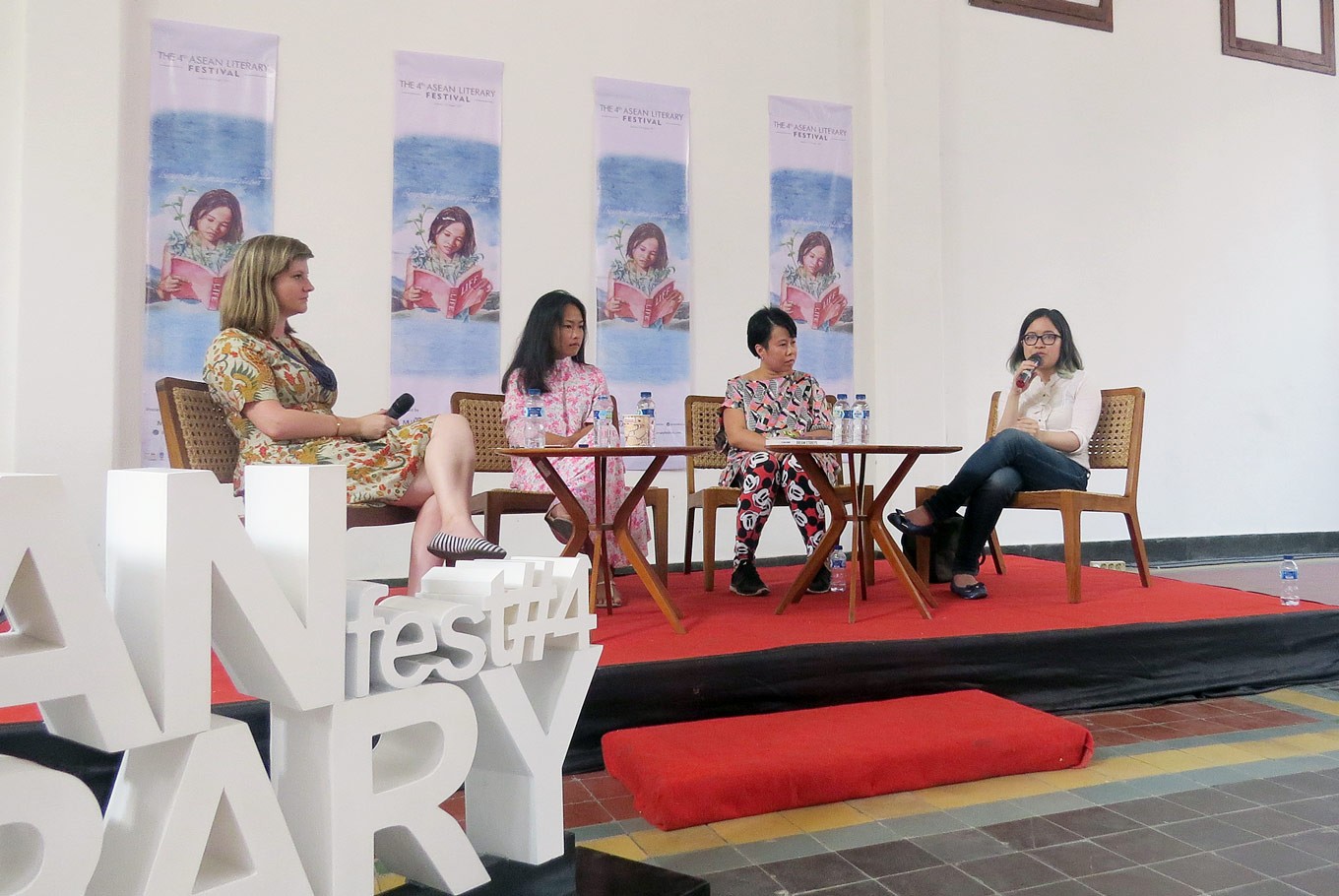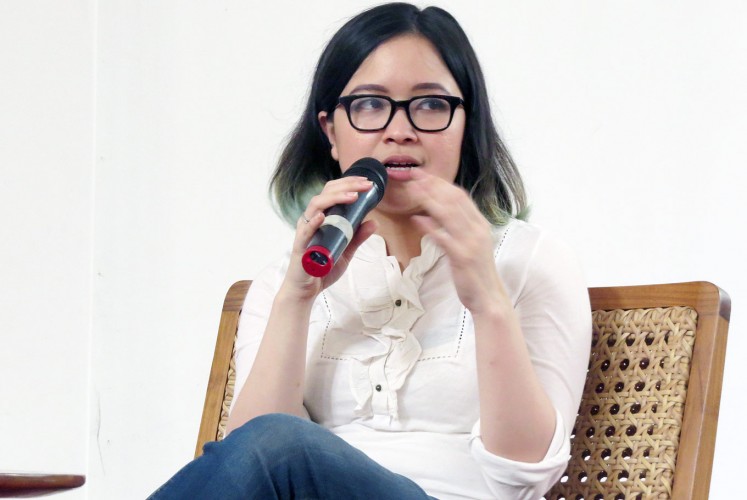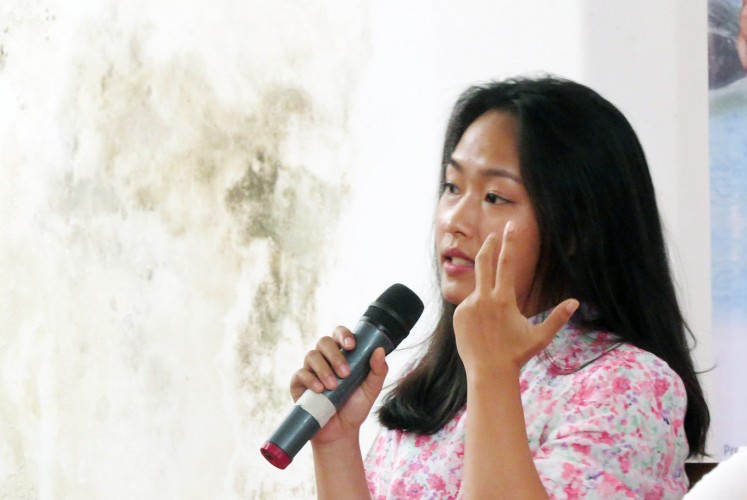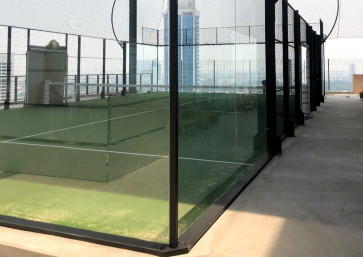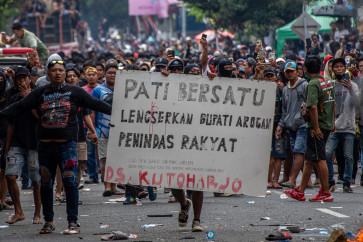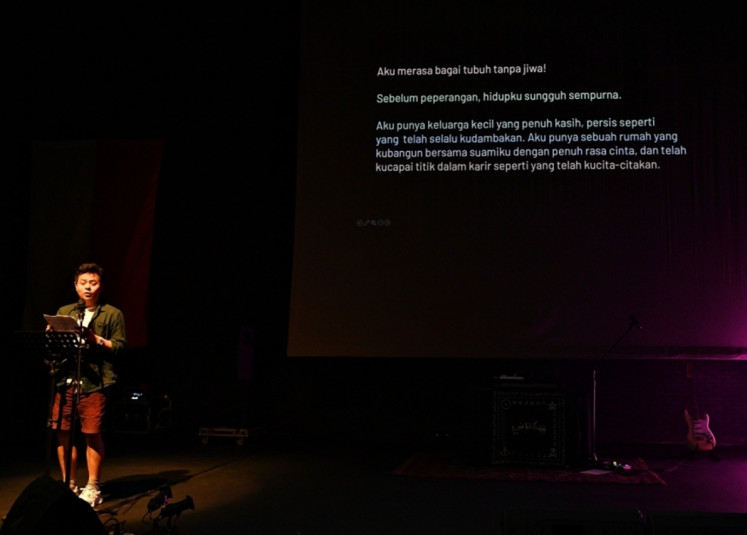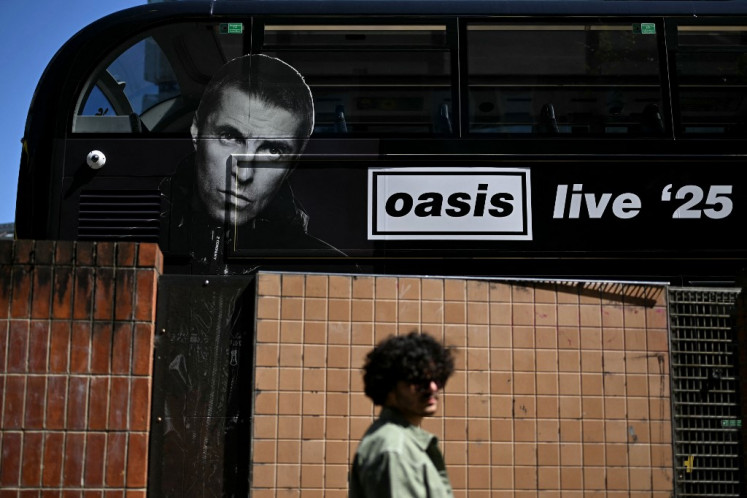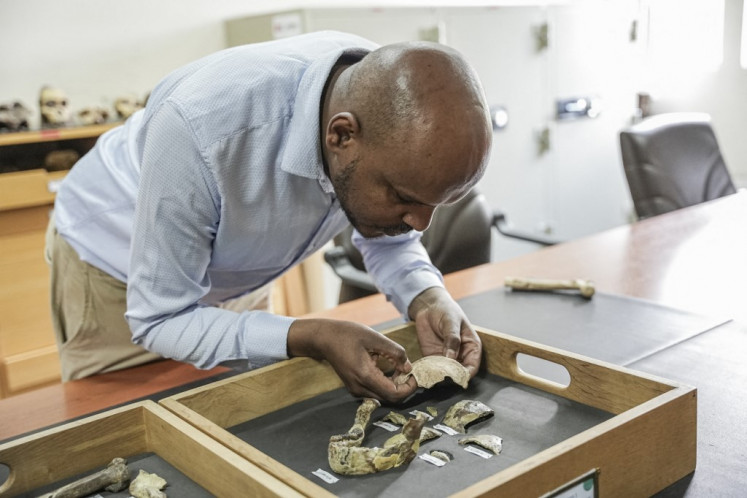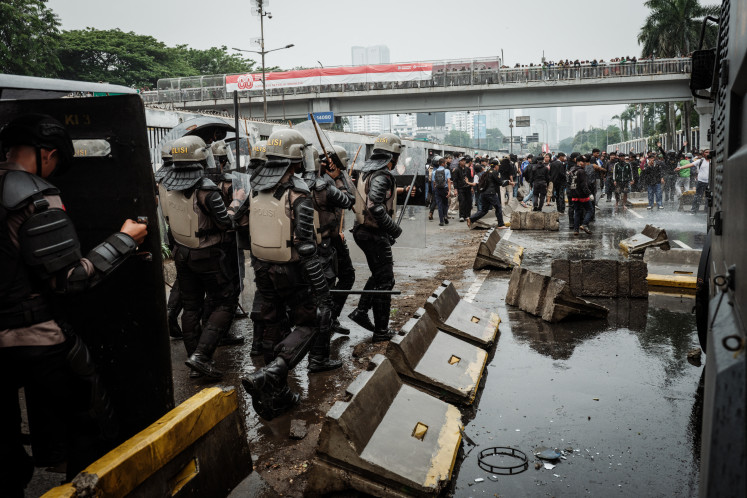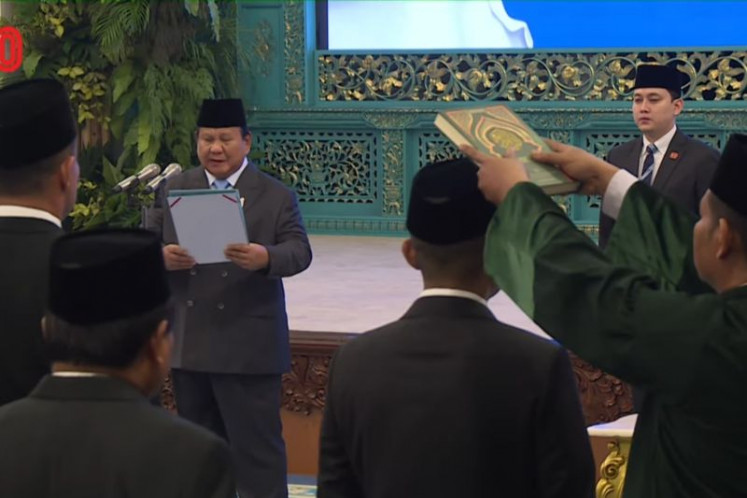Popular Reads
Top Results
Can't find what you're looking for?
View all search resultsPopular Reads
Top Results
Can't find what you're looking for?
View all search resultsA feminist future on the horizon
Having their voices heard is an ongoing battle for women.
Change text size
Gift Premium Articles
to Anyone
I
n the early 19th century, women in Western countries were first granted the right to vote after nearly 100 years of fighting. In Saudi Arabia, this right was granted in 2015. That is just one example in a world where a woman’s fight never ends. Over the last 100 years, women all over the world have been battling for their causes, each dependent on time, place and circumstances.
But the last 20 years have been different. With the advent of the internet, women everywhere were able to connect with each other and tell each other their stories. They draw strength from each other, support one another and unite for their common cause — gender equality.
During a discussion titled the Future is Feminist at the ASEAN literary festival in Kota Tua, West Jakarta, three speakers, Tra Nguyen, Clara Chow and Alanda Kariza, discussed the meaning they attributed to the word feminism, how they incorporate feminism into their work and the notion of feminism in their respective countries.
Alanda, a writer and the founder of the Indonesian Youth Conference, started by simply reminding women, particularly Indonesian women, that the fight begins from within and at home.
“Women should have confidence and courage themselves first,” she said.
Alanda, who published her first book at the age of 14, has always been an outspoken advocate for youth and gender equality issues. Her latest novel, Sophismata, tells the story of a young woman striving in the male-dominated world of politics.
But for Alanda, it’s not just being able to work that makes a woman a feminist. She highlighted how sometimes women look down on other women who choose to be homemakers and stay with the children. What mattered most was for women to actually know what they wanted to do in life and to have the courage to realize it.
“All women should have the ability to do what they want to do,” she said.
Alanda Kariza (JP/Sharon Nadeem)Clara, a Singaporean journalist turned author, echoed Alanda’s view, but emphasized that childcare should not be only a woman’s duty but a shared responsibility between a husband and wife. Clara envisions a future where gender is out of the equation, making the assigned gender roles obsolete.
Clara’s visionary views and strength were apparent when a member of the audience held up a book with extreme patriarchal views and asked what an individual woman could do when faced with such books.
“First, you laugh,” she said, “and then, you read, absorb and formulate your own response to the book. And then you write it.”
Clara urged woman to put their own versions out there to provide a counterargument to books that have patriarchal tendencies. She named Jane Eyre by Charlotte Brontë as an example of a woman who wrote a book to challenge the repressive views of that time.
She herself incorporates feminism and tackles social issues in her work, both journalistic and fiction, although fiction allows her to explore the issues in greater depth. The idea, she said, was not to force people to change their mindset, but rather to make them see the other side’s view.
“I just want to foster an exchange of tales, and I want people to know other people’s story,” she said.
Vietnamese visual artist and writer Tra uses symbolism and metaphors in her work to represent the issues and ideas she wants to address. Art, she noted, was somewhat different from written work. She pointed out that by just looking at a piece of art it isn’t easy to determine whether the artist is male or female.
“I think that what you say is more important than who says it,” she said. “An artist focuses on social issues regardless of gender.”
Currently running Sàn Art, the longest-running independent art organization in Ho Chi Minh City, Tra believes that change is happening, but that it is a slow and tedious process.
That serves as a reminder to all women that, as long as the fight continues, success is inevitable.
***
The writer is an intern at The Jakarta Post.

